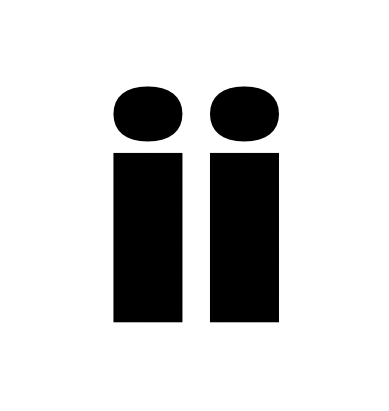My First Week of University...

Your first week of university is often imagined as a rite of passage, both an illuminating gateway into supposed freedom and wanton exposure to the vices that unfold on a university campus. For me, it has felt less like a canticle of novel experiences but rather like a furnace or crucible in which faith and identity are all tested. Without the scaffolding of family or the moral parameters of your local community or school, the university campus demands an answer to questions that cannot be ignored.
How can you maintain your identity as a Muslim when the world assumes you are like everyone else? How can you hold onto your principles and not surrender to the pressure of expectation? It is in those lecture halls and seminars, humming with the dastardly whispers, that one begins their journey in fortifying their identity.
A Shock Beginning
The eye-opening spectacles arrived almost immediately. During my induction day, I was handed a small bag in which were placed two condoms, a welcome package masquerading as a rite of passage into student life. I distinctly remembered Ustadh Hisham recounting this exact same moment on the Firmly Rooted podcast. I had laughed then, viewing it as a comical element of the British university culture. Yet, standing there, holding this bag, loaded with ideas and assumptions about who I was meant to be at university, the humour vanished. What had once seemed like an amusing anecdote, revealed itself as a shocking reality; an unspoken instruction that fornication, intimacy outside of marriage, fleeting encounters and moral flaccidity were not just tolerated but here encouraged.
Lecturers throughout the week spoke casually of alcohol and clubbing, weaving these into their lectures as though they were universal rites of passage and totally normal. Having been victims of this experience themselves, years ago. You may be unfazed by my strong emotional reaction to these encounters but as someone who has had the privilege of growing up in a solid Muslim home, school and community, this is thankfully foreign..
Social events were constructed around drinking, and even the official language of student societies seemed designed to normalise this. A simple enquiry into the debate society saw me invited to multiple introductory sessions hosted at bars or pubs. In a modern philosophy seminar, my lecturer openly disregarded the belief in God, dismissing it with a sneer as though the idea itself was beneath serious, academic engagement. I could not help but find a poetic justice in the irony. How can he spend decades studying and teaching metaphysics and the history of thought and morality, and still fail to recognise that belief is not an absurdity but rather the most natural and conclusive of all human ideas on existence?
Liberation is a Mirage
Universities have prided themselves on being the grand arena in which all social liberation takes place, a theatre wherein all shackles are shed and horizons expanded. You are emancipated from family pressure, alleviated of responsibility and handed a bottle whilst you're at it. From my first week, I have seen that much of what is alleged as freedom is simply conformity in a costume. The so-called liberated student life of drinking, clubbing and fornicating is less an expression of individuality than a performance of peer pressure. The irony is again painful, those who boast most of freedom often appear to me to be the most imprisoned, restricted no longer by parental involvement but by the tyranny of social expectation and individual desires.
Among Muslims, this tension is particularly apparent. I have met brothers of varying degrees in faith, myself also, falling amongst this broad spectrum. There are those that perhaps appear only for Jummah. Others are visibly torn between the mosque and the common rooms. Some have normalised excessive free mixing. as though it were a harmless inevitability. That, perhaps, has been my deepest shock, not the predictable indulgences of non-Muslim students, but the casual acceptance among some Muslims of practices once treated with great gravity and caution.
The Anchor of a Muslim Upbringing
In these moments, I feel the weight and the privilege of my own background. I spent my formative years in a Muslim boys school, an environment that instilled both clear social boundaries and firm moral principles. The moral compass was not an optional accessory but a central framework to interaction and education. We prayed together, strengthened our values, and learnt to lower our gaze not as a formality but as an act of faith and protection. Our successes measured not in popularity, but in integrity.
Those years brandished me with the principles that now act as anchors in my day to day. I must also attribute this decency to my parents who instilled in me every value I have, not just between ages eleven and sixteen, but from the day I was born. Without them, I suspect the tide of campus culture could have swept me away. It is in the silence of the prayer room, in the memory of my teacher's words, in the discipline of my upbringing, that I find my strength to resist. The grand disparities between that environment and this one is in itself a reminder on how fragile faith can be when left unattended.
Islamic Society is my Sanctuary
In this pernicious landscape, the Islamic Society has emerged as a sort of heaven on earth. ISOC is not simply a bureaucratic system, but a community, a brotherhood, a refuge to so many. Walking into the prayer room is to step out of the noise and into a space, where faith is not an eccentricity but a core pillar. This is your place and, these, your people. Friendships are not built on shared intoxication or fleeting pleasures but on prayer, remembrance of Allah and our place in this world, and ultimately the pursuit of something greater.
Studying politics and philosophy, a field in which faith is rare and Muslim presence are limited, ISOC provides what my course cannot; brotherhood rooted in faith. The contrast is striking. In lectures, I may feel like the odd one out, the anomaly who attempts resist the intellectual assault. But in ISOC, I find a warmth and reassurance, a reminder that we are not alone in this journey.
The Frictions of Philosophy
Philosophy is an attempt to wrestle with the deepest questions. Why we are here? What is truth? What constitutes a good life. Yet, I have seen it weaponised in the dismissal of the very source that animates the questions themselves. The belief in something beyond. I find it tragic that a discipline so rich in its engagement with the divine and the non-tangible has become a platform for arrogance and ridicule.
I do not see philosophy as a threat to my faith but as an opportunity to find utility in its resources and perhaps strengthen my own resolve along the way. Where lecturers scoff, I see space to ratify my own beliefs. Where peers dismiss, I see avenues to challenge and open up debate. If anything, the hostility I have already encountered has only sharpened my connection to Islam. Faith is not as fragile as we think, Islam is axiomatic and infallible, it need not be protected from difficult debate.
Three Years Left to Go...
One week in, I feel both cautious and tempered. The weariness comes from the constancy of the tests, the subtle and overt pressures that permeate every interaction, not just for me, but for every Muslim. The strength however comes from the knowledge and experiences of my upbringing.
The lesson is clear, university is not a neutral space. It is a place where certain lifestyles are glorified and pushed onto us, where faith is marginalised and Muslims are themselves tested in ways unimaginable. It is also a place of possibility, a chance to form bonds of brotherhood and to refine conviction.
I do not expect the years ahead to be easy. There will be moments of loneliness and of frustration, moments when holding onto beliefs feels exhausting, but this small place called university is only an iota of the tests we will continue to face until the day we return to our Lord. I also know that Allah has placed me here with a purpose. My task is not to shrivel in resentment but to march with dignity, to embody the moral clarity and spiritual strength that my parents, upbringing and faith have instilled in me.
People often say that university is where Muslims lose themselves. I believe it can now also be a place where Muslims can discover their true purpose and strengths. Yes, it is lengthy and burdensome journey but if you make it through this test then a world of opportunity awaits. It can be the place where faith is not inherited but chosen and lived. My first week has been proof of this. It has exposed me to the harshness of the environment but also to the beauty of brotherhood, solidarity and the resilience of conviction.
If there is one reality that my first week of university has revealed to me, it is that this world will rarely act in our best interest. The question is whether we allow it to taint the potential of our afterlife or whether we shape our place in it with the iridescence of Islam. And though the path is certainly not without difficulty, we must step into it with a certainty, knowing that every tribulation is not a roadblock to success, but a means of forging who you are meant to be.
Faithfully, Issa.

